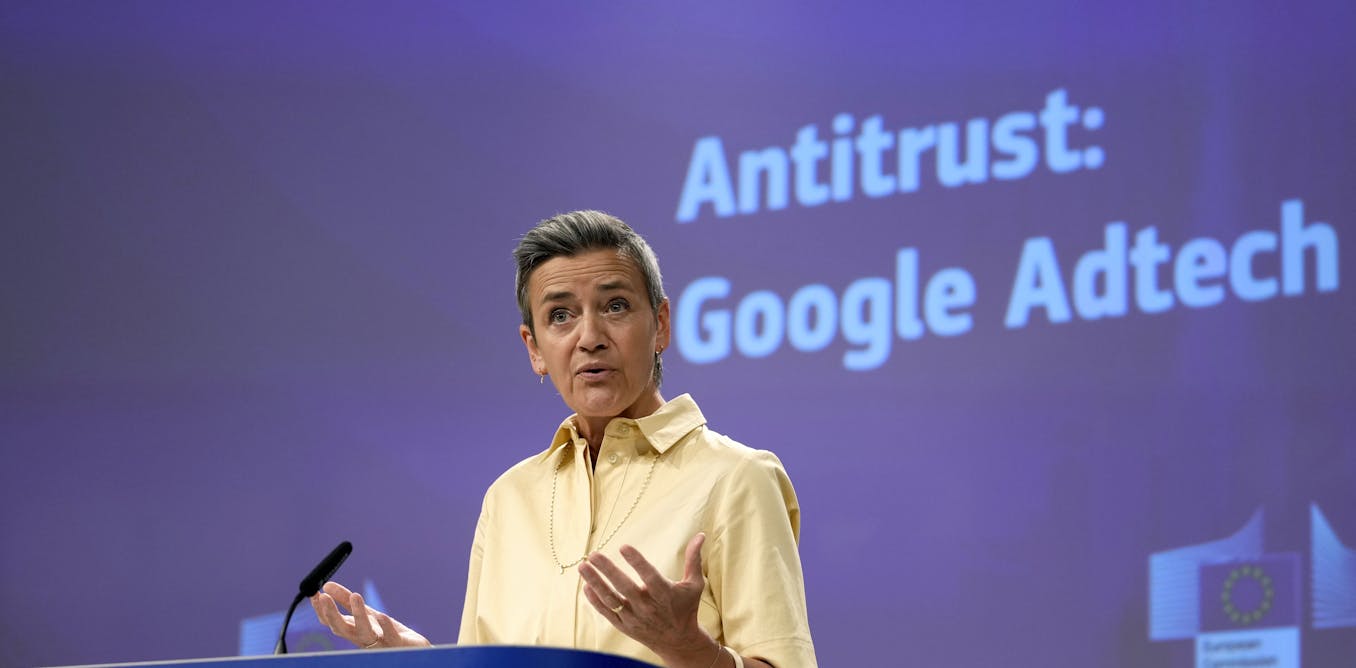Making the moral of the story stick − a media psychologist explains the research behind ‘Sesame Street,’ ‘Arthur’ and other children’s TV
Many children’s educational shows undergo pre-screening to make sure each episode delivers its intended message. Adult viewers watching alongside kids can help ensure the lessons are well received.
Feb. 23, 2024 • ~9 min
How a New York Times copyright lawsuit against OpenAI could potentially transform how AI and copyright work
The lawsuit could see other media companies move to protect their copyrighted content.
Jan. 17, 2024 • ~8 min
Should the media tell you when they use AI to report the news? What consumers should know
Media companies should set up guidelines for how they are using AI.
Nov. 14, 2023 • ~6 min
EU files antitrust charges against Google – here's how the ad tech at the heart of the case works
Antitrust suits against Google for its advertising practices center on the technology for buying and selling online ads. A computer scientist explains how these ad networks work.
June 15, 2023 • ~10 min
The allure of the ad-lib: New research identifies why people prefer spontaneity in entertainment
Audiences love improvised, off-the-cuff entertainment, and new research suggests it’s because spontaneity seems to offer a glimpse of the performer’s authentic self.
June 2, 2023 • ~5 min
Beware of 'Shark Week': Scientists watched 202 episodes and found them filled with junk science, misinformation and white male 'experts' named Mike
A recent study offers evidence that marine biology’s biggest stage is broken, and suggests ways to fix it.
Nov. 30, 2022 • ~10 min
Why 'bad' ads appear on 'good' websites – a computer scientist explains
A combination of volume, technology and financial need has opened the door to sleazy and dangerous advertisements on reputable websites.
April 13, 2022 • ~10 min
Ukraine: how social media images from the ground could be affecting our response to the war
To think about the ways in which images engage audiences, we can consider Europe’s response to two major refugee crises.
March 15, 2022 • ~7 min
/
3








